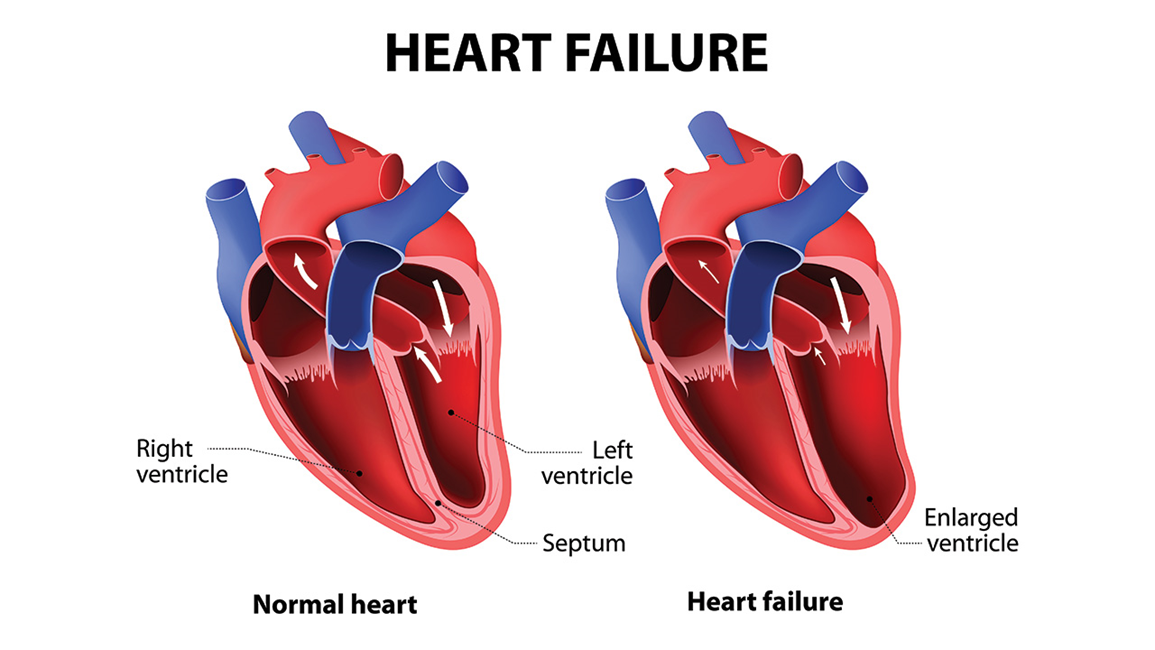A nurse is providing discharge teaching to a client who has heart failure. Which of the following lifestyle modifications should the nurse include in the discharge teaching?
Dietary and fluid restrictions
Encouraging increased mobility
Cessation of hormonal supplements
Cessation of intravenous (IV) drug use
None
None
The Correct Answer is A
Choice A: Dietary and Fluid Restrictions
Dietary and fluid restrictions are crucial for patients with heart failure. These restrictions help manage symptoms and prevent complications. Limiting sodium intake can reduce fluid retention, which decreases the workload on the heart. Fluid restrictions help prevent fluid overload, which can lead to worsening heart failure symptoms. Patients are often advised to monitor their weight daily to detect fluid retention early. This choice is essential for managing heart failure effectively.

Choice B: Encouraging Increased Mobility
While physical activity is generally beneficial for overall health, it must be approached cautiously in patients with heart failure. Encouraging increased mobility without proper medical guidance can lead to overexertion and exacerbate heart failure symptoms. Exercise programs for heart failure patients should be tailored and supervised by healthcare professionals to ensure safety and effectiveness. Therefore, this choice is not as immediately critical as dietary and fluid restrictions.
Choice C: Cessation of Hormonal Supplements
Hormonal supplements can have various effects on the cardiovascular system, but their cessation is not a standard recommendation for all heart failure patients. The impact of hormonal supplements depends on the specific type and the patient’s overall health condition. This choice is less relevant compared to dietary and fluid restrictions, which have a direct and significant impact on heart failure management.
Choice D: Cessation of Intravenous (IV) Drug Use
Cessation of intravenous drug use is important for overall health and preventing infections, but it is not specific to heart failure management. While IV drug use can lead to complications that may affect the heart, it is not a primary lifestyle modification recommended for heart failure patients. The focus should be on managing fluid balance and dietary intake
Nursing Test Bank
Naxlex Comprehensive Predictor Exams
Related Questions
Correct Answer is D
Explanation
Choice A reason: Hypokalemia
Hypokalemia refers to a low level of potassium in the blood. It can cause muscle weakness, cramps, and arrhythmias, but it is not directly related to Kussmaul breathing. Hypokalemia can occur in diabetic ketoacidosis (DKA) due to the loss of potassium in urine, but it is not the primary cause of Kussmaul breathing. Kussmaul breathing is a deep, labored breathing pattern that occurs as a compensatory mechanism for metabolic acidosis, not directly due to low potassium levels.
Choice B reason: Metabolic Alkalosis
Metabolic alkalosis is a condition characterized by an elevated pH in body tissues due to an excess of bicarbonate or a loss of acid. It is the opposite of metabolic acidosis. Kussmaul breathing is specifically a response to metabolic acidosis, not alkalosis. Therefore, metabolic alkalosis is not related to Kussmaul breathing.
Choice C reason: Lipolysis
Lipolysis is the metabolic process of breaking down lipids (fats) into free fatty acids and glycerol. This process is accelerated in diabetic ketoacidosis (DKA) due to the lack of insulin, leading to the production of ketone bodies, which contribute to metabolic acidosis. While lipolysis is a part of the pathophysiology of DKA, it is not directly related to Kussmaul breathing. Kussmaul breathing is a compensatory mechanism for the acidosis caused by the accumulation of ketone bodies.
Choice D reason: Hyperglycemia
Hyperglycemia, or high blood sugar, is a hallmark of diabetic ketoacidosis (DKA). In DKA, the lack of insulin leads to elevated blood glucose levels and the breakdown of fats into ketones, causing metabolic acidosis. Kussmaul breathing is the body’s attempt to compensate for this acidosis by increasing the rate and depth of breathing to expel more carbon dioxide, thereby reducing the acidity of the blood. Therefore, hyperglycemia is directly related to the occurrence of Kussmaul breathing in DKA.
Correct Answer is ["A","C"]
Explanation
Choice A Reason:
Acetaminophen is often used to manage pain and fever associated with pericarditis. It is a common analgesic and antipyretic that helps alleviate discomfort without causing significant gastrointestinal side effects. However, it does not have anti-inflammatory properties, so it is typically used in conjunction with other medications that address inflammation.
Choice B Reason:
Amiodarone is an antiarrhythmic medication used to treat and prevent various types of serious irregular heartbeats, such as ventricular tachycardia or ventricular fibrillation. It is not typically used for treating pericarditis, as it does not address the inflammation or pain associated with the condition.
Choice C Reason:
Indomethacin is a nonsteroidal anti-inflammatory drug (NSAID) that is effective in reducing inflammation and pain associated with pericarditis. NSAIDs are commonly prescribed for pericarditis to help manage symptoms and reduce inflammation. Indomethacin, along with other NSAIDs like ibuprofen, is often part of the first-line treatment for this condition.
Whether you are a student looking to ace your exams or a practicing nurse seeking to enhance your expertise , our nursing education contents will empower you with the confidence and competence to make a difference in the lives of patients and become a respected leader in the healthcare field.
Visit Naxlex, invest in your future and unlock endless possibilities with our unparalleled nursing education contents today
Report Wrong Answer on the Current Question
Do you disagree with the answer? If yes, what is your expected answer? Explain.
Kindly be descriptive with the issue you are facing.
